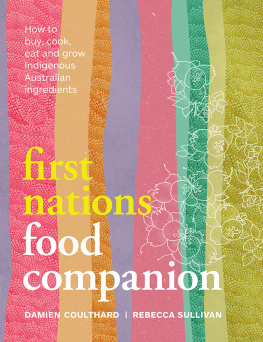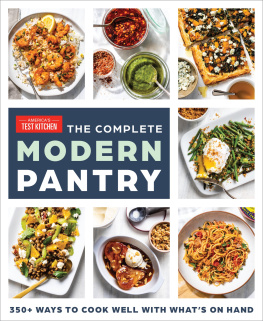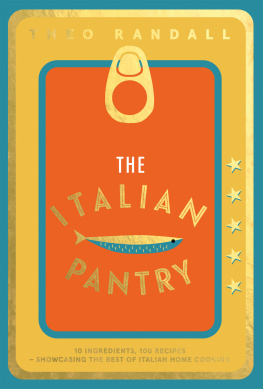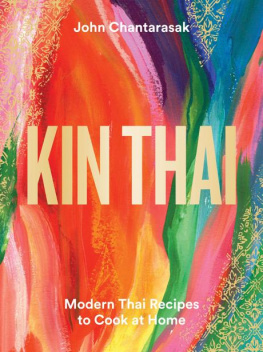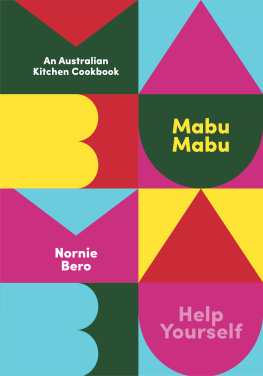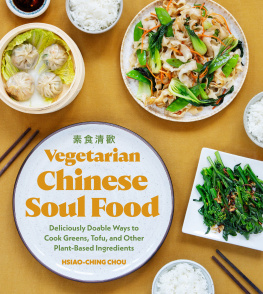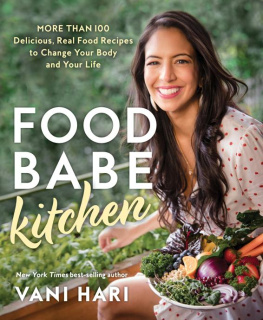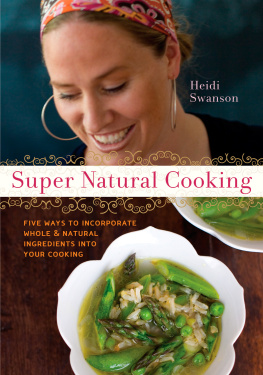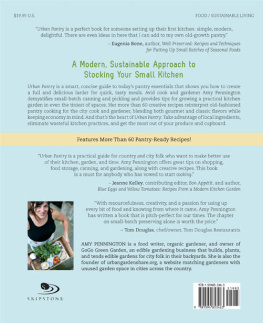This book brings ancient foods into the modern kitchen. Every page is full of fascination. A walk in the bush will never be the same. BRUCE PASCOE
We know more about pine nuts than bunya nuts, kale than warrigal greens, but theres an edible pantry of unique flavours that First Nations people have been making the most of long before anyone came up with the word foodie.
Welcome to a food-lovers guidebook to the first flavours of Australia. Including an informative guide to more than 60 of the most accessible Indigenous ingredients, including flavour profiles, traditional and modern uses, and tips for how to buy, grow and store them.
After that, more than 100 delicious recipes: all featuring native ingredients, and including tips for substituting regular pantry items where needed including Bush Tomato Cheese on Toast, Anise Myrtle and Macadamia Poached Chicken, Quandong and Davidsons Plum Iced VoVos, Wattlemisu and more. Along with features and recipes for an Indigenous medicine garden, tips for how to set up your pantry and freezer, and the best places to find native ingredients in shops and online.
From the award-winning founders of native food enterprise Warndu. Damien Coulthard is an Adnyamathanha and Dieri person of the Flinders Ranges, an international artist, cultural educator and former board director of the South Australian Native Title Service. Rebecca Sullivan is a food educator and author, regenerative farmer, Yale World Fellow and TV presenter.
JENNA LEE is a Larrakia, Wardaman and Karajarri woman with mixed Asian (Chinese, Japanese and Filipino) and Anglo Australian ancestry. Formally trained as a graphic designer, Jenna Lee works as an independent designer specialising in culturally informed book cover design, exhibition identity design, catalogue design and arts sector design. Finding great joy in working collaboratively with other First Nations curators and artists allowing overlaying passions of typesetting, design and art to collide. Lee has designed for Redland City Council Art Gallery, Blaklash Creative, Aboriginal Art Co as well as The Institute of Modern Art. Lees design exhibition identity and catalogue dean for Gathering Strands received a Highly Commended award at the Museums & Gallery Design Publication Awards in 2016. Insta: @jenna.mlee
CHARLOTTE ALLINGHAM is a 28-year-old Wiradjuri and Ngiyampaa, Queer Woman from central nsw, with family ties to Condobolin and Ivanhoe areas, currently living in Naarm (melbourne). Focusing on Blak excellence, she weaves through self-determination and Truth through her work. She tries to challenge the perception of her people through her own creative expression.

This book was created on the traditional lands of the Ngadjuri, Kaurna, Cammeraygal, Gadigal, Wangal, Kuringgai, Wurundjeri and Boon Wurrung people. We pay our respects to their elders past, present and future. Sovereignty was never ceded.
Dedicated to our sons. All the work, before you and beyond, by your mama and dadda, is for you. For your Yarta (Country), your story, your culture, your future.
Murdoch Books will donate $1 from the sale of each copy of this book to the Indigenous Literacy Foundation.
Foreword by Ngarrpadla Daphne Paringangki Rickett
(Aunty Daphne River Woman Rickett)
I am a proud Kaurna, Ngarrindjeri, Latji Latji woman born in the Riverland region of South Australia. I am the sixth child of thirteen children, a mother of two, grandmother to seven and great-grandmother to three. I am an Elder of the Southern Kaurna Community, where I have lived and spent most of my life in an urban settlement.
Over the last 25 years, my passion for Australian native bush foods and how to use them has grown. I am reclaiming my Culture and expanding the knowledge about the native plants and animals my Ancestors used in everyday life. Working alongside other people my friends who are chefs, plant growers, environmentalists, and many others with a passion for bush foods has given me the opportunity to further develop my expertise. I have spent many years travelling the Countries of our land and sharing the knowledge I have gathered along the way.
Recent times have seen a resurgence in the use of native plants in contemporary cooking, and when the opportunity came to work with Damien and Rebecca on the creation of this book, I was very excited. It has been a pleasure working with them and supporting them with this important work.
During the process of making the book, I was proud to share my Culture and I enjoyed cooking many of the exciting new dishes found in these pages. I was exposed to a modern world of cooking with the native plants that are found all over Australia and was introduced to dynamic recipes with a wide range of flavours. It was a privilege and an honour to be involved in this process, creating meals using a wide variety of herbs and ingredients that are delicious to the palate.
Damien and I shared the stories of our people, and what it was like growing up in different eras and on different Country. It was an eye-opener to listen to how Damien grew up with his people, learning and sharing Culture. This experience enhanced my passion for cooking with bush foods even more than I expected.
The information and recipes in this book will help readers understand more about my culture and other First Nations cultures through cooking and enjoying meals with friends and family. Sharing this Traditional knowledge offers us an opportunity to further heal the past.
I congratulate Damien and Rebecca for promoting Aboriginal Cultures through native plants and animals as food in a modern world. My hope is that people reading this book will be immersed in a new world of cooking and discover the richness and diversity of Australian native plants found in their own backyard.
Foreword by Bruce Pascoe, author of Dark Emu (Uncle Bruce Pascoe, Yuin man)
This book provides an important opportunity for Australia to contemplate the full 100,000 years of Australian history and the brilliance of Aboriginal land use and sustainability. Acceptance of those truths brings Australians black and white closer to our history and geography, and more in tune with the reality of our location without the need to justify the theft of the land. That understanding will produce a maturity and generosity in the country that has been lacking.
The exploration of Aboriginal and Torres Strait Islander botanical and culinary knowledge is not only relevant to our health and of interest for the flavours it helps us generate from our kitchens, but it also invites Australia to contemplate the use of our land and climate. These plants are Australian; they thrive in the Australian climate and soils, so dont require the coddling and artificial support of plants imported from other countries.
Ploughing and irrigation have reduced some Australian agricultural districts to salty deserts. Engineers can organise the relocation of soil and fertility, but seem incapable of reversing salinity, empty rivers and environmental degradation. Growing Australian plants and eating soft-footed animals, however, goes a long way towards rectifying the destruction of Australian soils, whose fertility has been plummeting for more than 200 years.
Eating less meat will also be a good thing for the planet in general. Our diets, being so meat-orientated, create a burden for the planet that is unsustainable. Enthusiastic meat-eaters like me need to find alternatives. This First Nations Food Companion is our chance to adopt a more sustainable diet.

